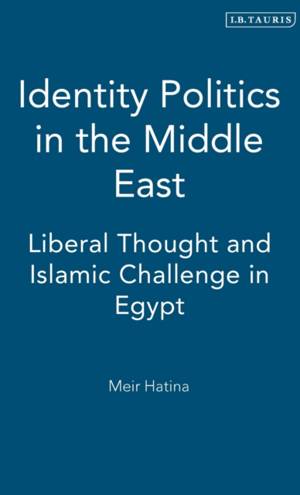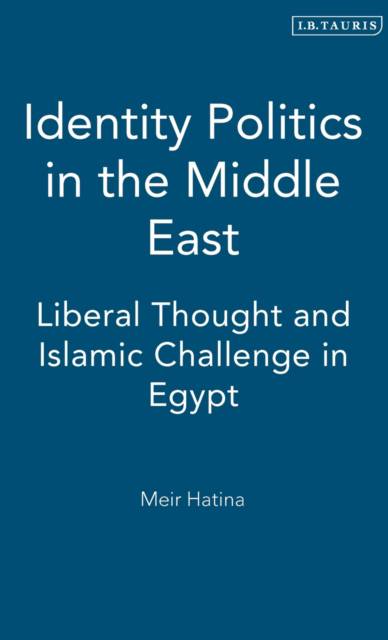
- Afhalen na 1 uur in een winkel met voorraad
- Gratis thuislevering in België vanaf € 30
- Ruim aanbod met 7 miljoen producten
- Afhalen na 1 uur in een winkel met voorraad
- Gratis thuislevering in België vanaf € 30
- Ruim aanbod met 7 miljoen producten
Zoeken
€ 296,95
+ 593 punten
Omschrijving
The role of Islam in the state has become one of the most contentious issues in modern Middle Eastern society. It holds a central position in every public debate over constitution, law and civil rights, as well as over the very essence of cultural identity. Here Meir Hatina sheds light on the issue of Islam in the state through the prism of Egypt during the twentieth century. He traces the continuity of Egyptian liberalism, from its emergence during the first half of the century through its repression following the July 1952 revolution, to the rise of secular liberalists such as Faraj Fuda in post-revolutionary Egypt. 'Identity Politics' reveals the assertive nature of the Islamic struggle, the desire to remake the state by fostering a close affinity between faith and power, worship and politics, which holds contemporary resonance for all Middle Eastern states.
Specificaties
Betrokkenen
- Auteur(s):
- Uitgeverij:
Inhoud
- Aantal bladzijden:
- 280
- Taal:
- Engels
- Reeks:
- Reeksnummer:
- nr. 62
Eigenschappen
- Productcode (EAN):
- 9781845111359
- Verschijningsdatum:
- 30/03/2007
- Uitvoering:
- Hardcover
- Formaat:
- Genaaid
- Afmetingen:
- 142 mm x 216 mm
- Gewicht:
- 430 g

Alleen bij Standaard Boekhandel
+ 593 punten op je klantenkaart van Standaard Boekhandel
Beoordelingen
We publiceren alleen reviews die voldoen aan de voorwaarden voor reviews. Bekijk onze voorwaarden voor reviews.











